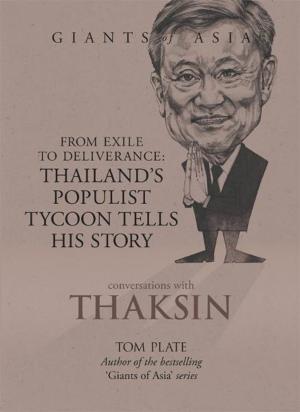Within Changi's Walls
A record of civilian internment in World War II
Nonfiction, History, Asian, Southeast Asia, Asia| Author: | George L. Peet | ISBN: | 9789814677240 |
| Publisher: | Marshall Cavendish International | Publication: | May 11, 2011 |
| Imprint: | MarshallCavendishEditions | Language: | English |
| Author: | George L. Peet |
| ISBN: | 9789814677240 |
| Publisher: | Marshall Cavendish International |
| Publication: | May 11, 2011 |
| Imprint: | MarshallCavendishEditions |
| Language: | English |
When the Japanese captured Singapore in February 1942, the European population was rounded up and sent to internment camps, where they were kept till the end of the war. This is the story of one such internee George L. Peet whose diaries and records preserve a stunningly vivid portrait of the triumph of the human spirit in those trying times. Interned first at Changi Gaol, then at Sime Road Camp, Peet paints a detailed and moving picture of the world behind walls. The internees mostly British and mostly the top tier of pre-war Singapore society find themselves in vastly reduced circumstances, dispossessed and humiliated. Fortunately, their Japanese wardens, while enforcing strict security, left the running of the camps to the internees. And so, drawing on their respective skills from their peace-time occupations, the internees soon organized themselves into an elaborate functioning microcosm of society. Those who had been doctors served as camp doctors. Those who had been in the Department of Agriculture grew vegetables. The engineers saw to water and sanitation. The chemists made yeast for bread. And experts from every conceivable field took turns to lecture at the unofficial, in-house Changi University. In the author’s own words: a veritable war-time “Swiss Family Robinson” indeed. With a sympathetic eye, Peet reveals the strength as well as the ugliness of human nature. Food, comfort, survival, morale, and a longing to be reunited with his wife and children fortunately evacuated to Australia form the main part of the author’s thoughts, as well as the backbone of this riveting record.
When the Japanese captured Singapore in February 1942, the European population was rounded up and sent to internment camps, where they were kept till the end of the war. This is the story of one such internee George L. Peet whose diaries and records preserve a stunningly vivid portrait of the triumph of the human spirit in those trying times. Interned first at Changi Gaol, then at Sime Road Camp, Peet paints a detailed and moving picture of the world behind walls. The internees mostly British and mostly the top tier of pre-war Singapore society find themselves in vastly reduced circumstances, dispossessed and humiliated. Fortunately, their Japanese wardens, while enforcing strict security, left the running of the camps to the internees. And so, drawing on their respective skills from their peace-time occupations, the internees soon organized themselves into an elaborate functioning microcosm of society. Those who had been doctors served as camp doctors. Those who had been in the Department of Agriculture grew vegetables. The engineers saw to water and sanitation. The chemists made yeast for bread. And experts from every conceivable field took turns to lecture at the unofficial, in-house Changi University. In the author’s own words: a veritable war-time “Swiss Family Robinson” indeed. With a sympathetic eye, Peet reveals the strength as well as the ugliness of human nature. Food, comfort, survival, morale, and a longing to be reunited with his wife and children fortunately evacuated to Australia form the main part of the author’s thoughts, as well as the backbone of this riveting record.















